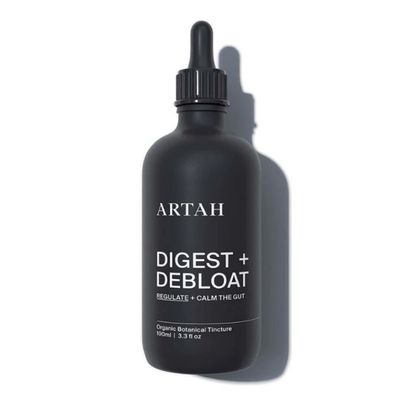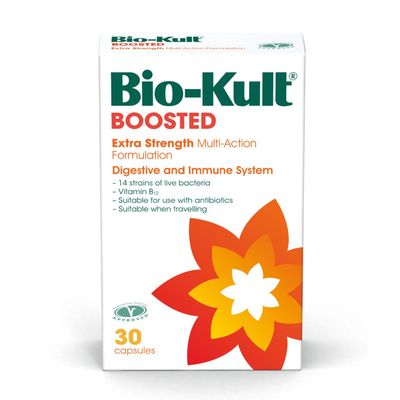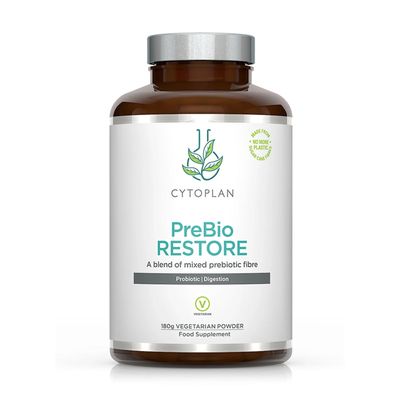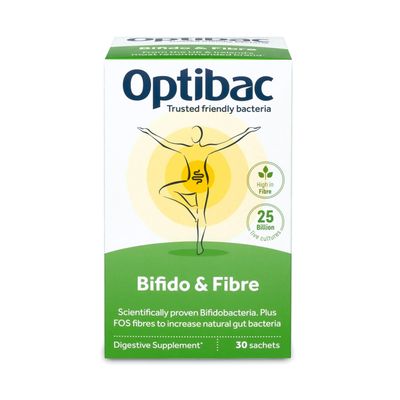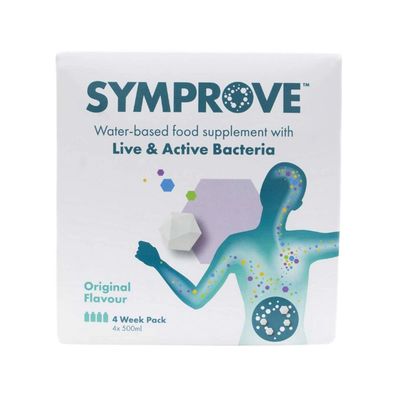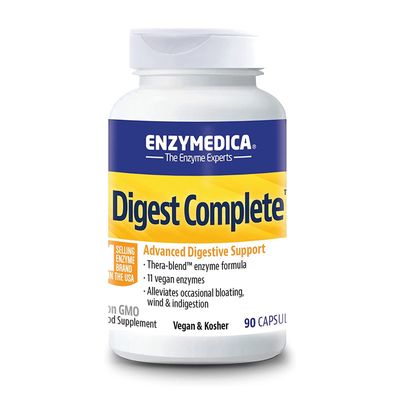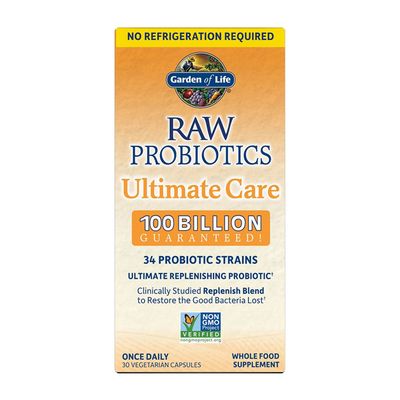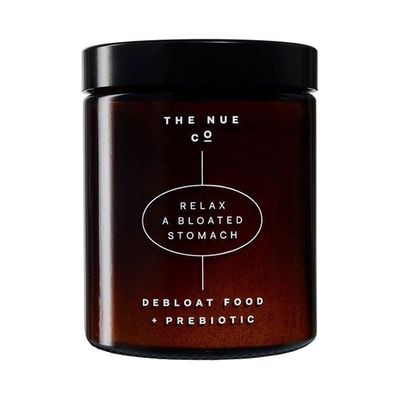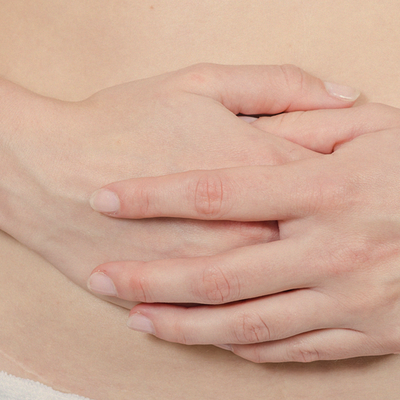
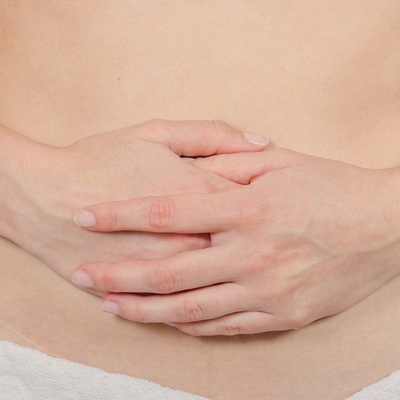
How To Look After Your Gut As You Age
All products on this page have been selected by our editorial team, however we may make commission on some products.
Firstly, how does your gut health change throughout your life?
“Like other organs and tissues, the gut microbiome – the name we give to the billions of good bacteria that live in your gut – undergoes a continuous ageing process. As we age, levels of the beneficial types of bacteria decline and other forms associated with inflammation and negative health consequences increase. Your gut is also connected to your hormones, especially in midlife and beyond. Hormones like oestrogen play an integral role in modulating your microbiome not just in your gut, but in your vagina, too. When oestrogen levels are altered, for example during the menopause, the microbiome may also be affected. The gut microbiome has been shown to influence many physiological processes, so these changes may result in metabolic and immunological changes, which could in part explain the increased risk of disease post-menopause.” – Hannah Braye, technical advisor at Bio-Kult
Why exactly is gut health so important later in life?
“Studies show that the lower the diversity of your gut bacteria (i.e., the less different types of bacteria), the more likely you are to become frail and less mobile. You may have more health conditions requiring medications or end up requiring prolonged care. This shows the significant impact gut health has on your overall health and how it influences the ageing process. Poor gut health is also linked to the top killers of cancer, heart disease, dementia and autoimmune disease, among others. All of us should be thinking about improving our gut health if we want to live a long and healthy life.” – Dr Jess Braid, medical doctor, functional medicine practitioner and co-founder of The Natural Doctors
“As we age, our immune system gradually weakens, which can cause inflammation and increase the likelihood of cardiovascular disease and cognitive decline. This is important as 70% of our immunity resides in the gut. Dysbiosis – an imbalance of the gut microbes – may contribute to inflammation, contributing to the ageing process.” – Hannah
What are the most common gut-related symptoms you may experience?
“The perimenopausal and postmenopausal periods are often accompanied by bloating, constipation and other IBS-like symptoms. A slowing of bowel motility is believed to be linked to both a reduced metabolism and menopause-induced changes in the gut microbiome.” – Hannah
What should you be eating more, and less, of?
“Countless studies show western women suffer with menopausal symptoms more than women from other cultures, and this could be down to the western diet, which tends to be high in sugar, refined carbohydrates and processed foods, as well as being low in fibre. This way of eating can lead to blood sugar imbalances and nutrient deficiencies, which can affect both the lining of the gut and exacerbate menopausal symptoms. Studies also show that having a diverse gut microbiome, with lots of different beneficial species, is a key determinant for good health. To encourage diversity in the gut into older age, it’s recommended to…
- Eat A Wide Variety Of Plant Foods: The more plant foods you eat, the greater the diversity in the gut. Aim to eat at least 30 different fruits, vegetables and wholegrains per week – this will also increase fibre intake and relieve constipation.
- Eat Foods Rich In Prebiotics: Foods such as garlic, onions, leeks, slightly under-ripe bananas, artichokes, asparagus and dandelion greens provide a food source for the good bacteria in your gut.
- Introduce Probiotic Foods: Traditionally fermented foods such as kefir, live yoghurt, kimchi, sauerkraut, kombucha and miso are particularly rich in good bacteria to nourish the gut.
- Up Your Antioxidants: Increase your intake of polyphenol-rich foods such as berries, green tea, dark chocolate (at least 75% cacao), cloves, star anise and other herbs and spices. Polyphenols are antioxidant-rich and have been shown to increase the good bacteria in your gut and inhibit pathogens (undesirable microbes).” – Hannah
How else can you support gut health?
“Lifestyle practices that can help support a healthy gut microbiome later in life include taking regular gentle to moderate exercise; reducing your exposure to environmental toxins by eating homegrown or organic where possible, filtering your water and using natural skincare and home cleaning products; and taking active steps to reduce stress, whether it’s signing up to a meditation or mindfulness course, or doing more restorative exercise such as yoga. Taking just 15 minutes a day for yourself – whether it’s to take a bath or walk, read a book or do deep breathing exercises can make all the difference. It’s important to understand the gut and brain are very closely linked by our nervous systems, so the more you can do to relax, the better. This includes not rushing meals or eating in a stressful environment.” – Hannah
Can supplements help?
“A daily probiotic can help support the microbiome, but its impact is lost quickly on stopping, meaning you’ll need to take one consistently and long-term for the best results. Prebiotics can be more helpful as they provide food for your good bacteria – I rate Prebio Restore by Cytoplan. Making sure you have enough vitamin D is also important as studies show optimal levels increase the overall diversity of your microbiome. You can ask your GP for a blood test – your levels should be between 70-150 ng/ml.” – Jess
“Live bacteria supplements have a growing body of evidence behind them for supporting digestive function. They work by helping to inhibit pathogens, support the gut lining and regulate the immune system. Supplementation is particularly beneficial if you suffer with constipation, IBS or IBD. There’s also emerging evidence indicating that live bacteria supplements may be able to support other aspects of health as we age, including our bone and cardiovascular health.” – Hannah
If you are worried about your gut health, where can you get help?
“Your GP should always be your first port of call – they can investigate your symptoms and rule out any causes of concern. They may refer you to a dietitian for dietary advice, or you can also consult a registered nutrition practitioner (i.e., a nutritional therapist or nutritionist), who will be able to give you more personalised advice, looking at all aspects of your health. You can find a registered nutrition practitioner in your area on the British Association of Nutrition and Lifestyle Medicine website.” – Hannah
For more information visit TheNaturalDoctors.com and Bio-Kult.com
Shop Our Edit Of The Best Gut Health Products Below...
DISCLAIMER: Features published by SheerLuxe are not intended to treat, diagnose, cure or prevent any disease. Always seek the advice of your GP or another qualified healthcare provider for any questions you have regarding a medical condition, and before undertaking any diet, exercise or other health-related programme.
DISCLAIMER: We endeavour to always credit the correct original source of every image we use. If you think a credit may be incorrect, please contact us at info@sheerluxe.com.
